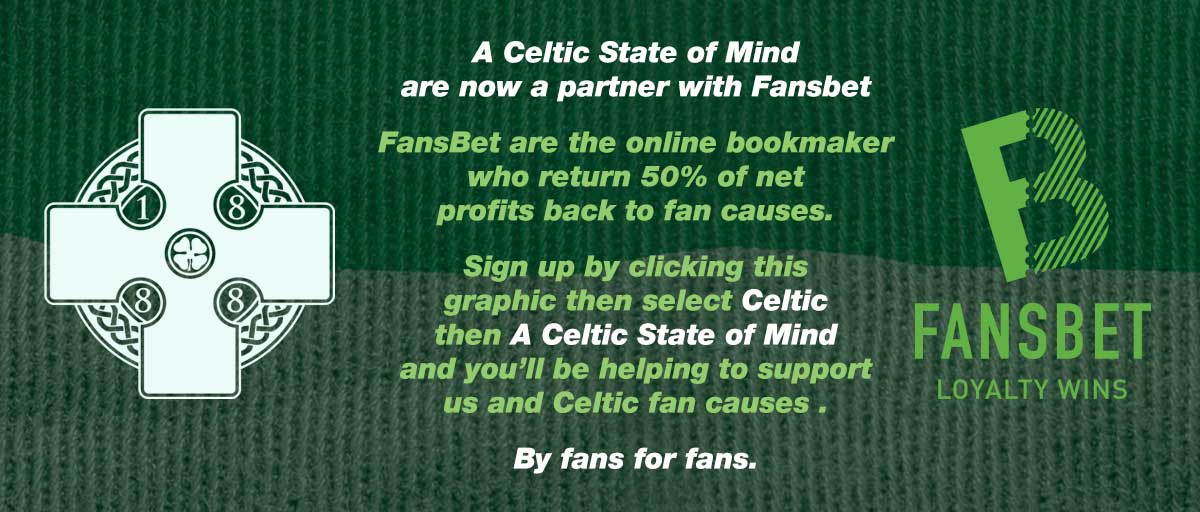On the day that Brendan Rodgers’ side became Scottish football’s ‘Invincibles’ (21 May 2017), Celtic’s entire stadium was decorated in a spectacular green, white and gold choreographed tifo in homage to ‘The Immortals’ of 1967.
It was a breathtaking sight in a year of celebrations that culminated in a 1000-strong pilgrimage of Celtic supporters to Portugal’s Estadio Nacional on Thursday, 25 May 2017 to commemorate the half-century anniversary of that unforgettable afternoon in Lisbon.
52 years ago, the 11 players from that folkloric contest against Inter Milan became etched in the Celtic history books as the Lisbon Lions. Jock Stein’s devoted men employed his masterly tactics to overcome the infamous Catenaccio defensive system of Inter, playing fast and attractive football in what connoisseurs of the club would call ‘The Glasgow Celtic Way’. If Catenaccio was Helenio Herrera’s ‘door-bolt’, then Stein certainly fashioned the key.
On paper, Celtic couldn’t win the contest, but no-one told Stein’s men that. By the time the 90 minutes were up and the Inter Milan players collected their runners-up medals following their 2-1 defeat, they could be under no illusions. They had been completely outplayed, monumentally out-thought and totally outclassed by this unfancied team from Scotland who had a student dentist at right-back, a 36-year-old goalkeeper who kept colleague Bobby Lennox’s false teeth in his bonnet behind his goals, and an uncontainable red-headed urchin of a right-winger, Jimmy Johnstone, who had given the Italians a masterclass in football entertainment of the like they had never before witnessed. This was Jock Stein’s Celtic at their impeccable and irresistible best.
Celtic fans, who often travel to Lisbon from all over the globe on an almost spiritual pilgrimage, could be forgiven for gazing over that hallowed Portuguese turf whilst visualising the spirit of ‘67… They undoubtedly think back to the inspirational Bertie Auld’s legendary pre-match East End tribal chant in the tunnel… To veteran goalkeeper, Ronnie Simpson, audaciously back-heeling the ball away from an onrushing ‘Nerazzurri’ forward… To Jim Craig calmly laying on the occasionally mercurial Tommy Gemmell for a trademark thunderbolt shot to level the score.
They may even trespass on to the lush green pitch to re-enact the most important goal scored in the history of Scottish football.
And, of course, no walk down memory lane would be complete without scaling the steps to the podium where that majestic leader of men, Billy McNeill, became the first British footballer of all time to lift the European Cup. The vision of ‘Cesar’ holding aloft that gargantuan trophy above his head is something that every fan of this special football club should cherish; it has rightly become the defining image of Stein’s glorious reign.
A very close second must be the shot of Stevie Chalmers, socks at his ankles, a moment after diverting a fierce Bobby Murdoch drive beyond Sarti in the Inter goal. As the much-lauded West German referee, Kurt Tschenscher, blew his final whistle in Lisbon five minutes later, Chalmers’ 36th goal of the season had won the Holy Grail for Celtic.
And no one deserved the glorious accolade more than Stevie Chalmers.
This was a striker who, as a young man, had fought back from a life-threatening bout of tuberculous meningitis, and went on to make his 29th European appearance in Celtic’s 31st European tie. By the time that Celtic reached the 1967 final, Chalmers had already played in (and lost) two European Cup Winners’ Cup semi-finals for the club.
His contribution to the European run of 1966-67 was pivotal to the team’s progress, as he appeared in all nine matches, and finished as top marksman with five goals. Chalmers scored the first and deliberately impeded goalkeeper Pantelic for Billy McNeill’s winner in the narrow defeat of Vojvodina of Yugoslavia at the quarter-final stage of the tournament. In the semi-final second leg, he unselfishly led the line in Czechoslovakia against Dukla Prague to set up a mouth-watering encounter with two-time champions, Inter Milan.
Yet, had Joe McBride been fit for the final, then the man with the golden touch may have been left out of the starting 11.
Chalmers’ iconic winning goal in Lisbon edged him one strike ahead of his injured team-mate, McBride, whose knee had given way at Pittodrie five months earlier. Despite not playing beyond Christmas Eve 1966, McBride had already scored a galactic haul of 35 goals. This tally had propelled him to the highest echelons of European football’s top goalscorers and would surely have put him in contention for a starting berth in Lisbon.
The record books show, however, that Chalmers was partnered with Willie Wallace, an alert and instinctive finisher, who had been the Glasgow club’s record signing at the time of the Lisbon showpiece. The £30,000 paid to Hearts for ‘Wispy’ had eclipsed the £22,500 shelled out to Motherwell 18 months previously for the lethal McBride.
The humble Chalmers was an experienced head in the Lisbon camp, having made his debut during the 1958-59 season, but, by his own admission, his over-modest and non-confrontational approach made him an easier player for Jock Stein to drop.
Despite being singled out for such ruthless treatment at times, Chalmers still looked back fondly at his former boss’ methods, “There was always a good bond within our side,” stressed Stevie when I spoke to him in 2015. “The whole team were all so together. It felt as though I was playing football with my friends, and that all came from Jock. He was such a good manager that he could pick people up even when they were off their game. He did a lot for us all.
“Sean Fallon and Neilly Mochan were also great, and they had been players in the team just before I joined Celtic. It was brilliant to still have them around, and Jock had them working tremendously behind-the-scenes.
“Neilly was a good, decent person, and we got on well. I went to see him in his room more often than anybody else when we were away at Seamill because he knew I was a wee bit quieter than the rest of them.
“I always think back to coming up to the stadium on the bus from Seamill to play a big European game, and all the boys would be singing Celtic songs. It was such a great feeling.”
The reward for the Lions’ trailblazing exploits was a gold postage stamp medal bearing the immortal words, ‘Coupe De Clubs Champions Europeens,’ with the reverse inscription reading, ‘Vainquer 1967.’ This is a symbol of immeasurable glory, the single-most sought-after prize in European football, and players from just one Scottish side have ever been presented with this exquisite emblem of victory.
Although that lionised Celtic side may forever remain peerless, the club has lost another two of its favourite sons in the past week. Even though Neil Lennon’s charges of today are on the verge of achieving their own hitherto unheralded treble treble, it has been a season dogged by the adversity of conflict, defection and loss. That this group of players has overcome every challenge posed to them is testament to their tenacity of character. Should they scale the Hampden steps on 25 May (of all days) to collect Scottish Cup winners’ medals, it will be a fitting tribute to two of the men who helped create the success that is synonymous with the modern-day Celtic.
Paul John Dykes
Listen to the award-winning A Celtic State of Mind podcast


Leave a Reply
You must be logged in to post a comment.